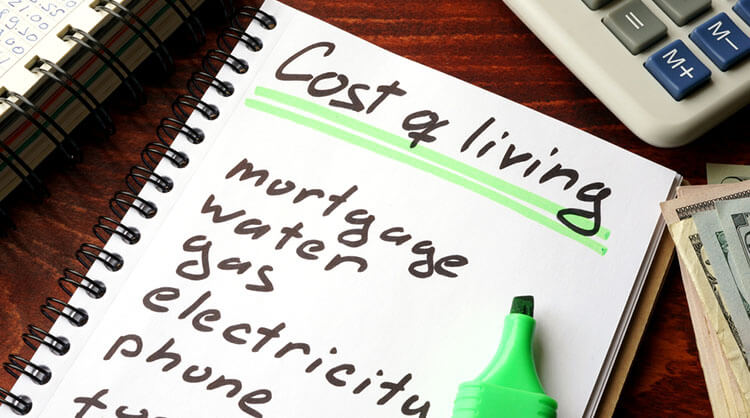What government savings and rebates am I entitled to in 2019?

What government savings and rebates am I entitled to in 2019?
- Compare the cost of living by state/territory.
- New South Wales government rebates for saving.
- Victoria government website links for saving.
- Queensland government links for seniors and families.
- Western Australia government rebates for saving.
- Tasmania government links for concessions and savings.
- Australian Capital Territory government rebates.
- Northern Territory government incentives and rebates.
What government savings and rebates are you entitled to this year? We all know that the cost of living in Australia is high and rising. For example, just late last year, the living cost index annual raise was 2.0% for employee households, from a report from September. However, the good news is that it is possible and sometimes surprisingly easy to reduce your cost of living.
State governments have many tools, links and websites that can show you how to save money and for which rebates you might be eligible. This article takes you through some of the resources you can explore to find out which rebates and savings you might be able to take advantage of. Take some time to investigate and who knows, you might find 2019 looking financially brighter than you thought it was going to.
1. Compare the cost of living by state/territory.

It is probably no surprise to find out that different cities across Australia offer different costs of living. This information can be particularly useful when you are considering a move and comparing wages between states. Whilst Sydney takes the top place when it comes to cost of living, Perth has been showing slower price increases, particularly for food, communication and transport.
In general, households in WA are doing better than those in other states and have incomes that are rising quicker than living costs. The same pattern is not necessarily reflected across Australia, with rising housing costs being the main cost of living concern.
2. New South Wales government links for saving.
The NSW budget 2018-2019 acknowledged issues with the national economy and local matters such as the impact on agriculture of drought but has, over the years, introduced a number of packages designed to provide NSW cost of living support. These include an online energy deal checker (available soon), an extension of universal education access to include 3-year-olds and the Toll Relief Program for those for whom travel on toll roads is proving expensive.
The NSW Government Savings Finder is a simple online questionnaire, which uses the answers to a few basic questions to highlight actions, savings and rebates that match your circumstances. These include advice and help with energy and utilities, leisure and recreation, raising children and driving.

3. Victoria government links for saving.
The Victorian Budget 2018-19 has pledged to give Victorians more help with the cost of living, with a particular investment in the Power Saving Bonus, which will help ensure fairer deals from power companies and is available until June 30th 2019.
Young farmers and those suffering unexpected hardship are eligible for specific help as are servicemen and women who are buying their first home. The Victorian Government is also demonstrating a commitment to sustainability by offering specific solar power and energy saving product incentives.
4. Queensland government links for seniors and families.
As part of their commitment to family life, the Queensland Government offers a range of financial assistance packages and rebates designed to help those with children. These include QKFS Plus Kindy Support, which provides help with early childhood education commitments for those using the services of approved kindergarten program providers and adjusted Child Care Packages including the Child Care Subsidy and the Additional Child Care Subsidy (for those with specific barriers to child care access).
In Queensland there is also help with energy bills available to qualifying Queensland pensioners and seniors in the form of the Electricity Rebate and the Reticulated Natural Gas Rebate.

5. Western Australia government links for saving.
The Government of Western Australian offers a range of energy concession schemes under the Energy Concession Extension Scheme (ECES). These include the Energy Assistance Payment (EAP), the Dependent Child Rebate (DCR), and the Air Conditioning Rebate (ACR). Payments are subject to eligibility and cardholder status.
The Government of Western Australia has provided a simple but comprehensive online resource that can give details on more than 100 subsidy schemes, concessions and rebates and allows searches by category (for example education), card type (for example health care card) and people group (for example first home buyers).
6. Tasmania government links for concessions and savings.
The Tasmanian Government’s range of discounts and concessions have been designed to provide a more balanced standard of living and ensure access to crucial services for the whole community. Help categories include health, transport, housing and electricity.
The Tasmanian Government offer a comprehensive Discounts and Concessions Guide as well as an online concessions finder, which allows browsing by category or concession card.

7. Australian Capital Territory government rebates.
The ACT Government offer a ‘one-stop-shop’ for ACT Government assistance and programs to cut the cost of living via energy saving and waste reduction as well as providing assistance with other expenses including food, health and dental, housing and education. The website provides both advice and access to the appropriate application forms.
8. Northern Territory government incentives and rebates.
As well as announcing financial incentives for those who relocate to take on high priority jobs, the NT Government offers rebates and subsidies on a range of living costs. These include, public housing rent, the non-means tested Seniors Recognition Scheme and help with child care costs.
Could you earn more with a better qualification?
Hopefully you found something in the above information that will help you to save money and make the most of your finances in 2019. You might also be interested to know that, by increasing your recognised qualification level, you can significantly improve your earning potential.
For example in 2016 Australians aged 20-64 with qualifications at Bachelor level and above earned $600 more each week than those with no qualifications. Gaining qualifications is easier than you think it might be with a flexible online course that can fit around your busy lifestyle or work commitments.
Choose the online course that is right for you, spread the course payments and study when you want to. What could be a better financial boost for 2019?


)
)

